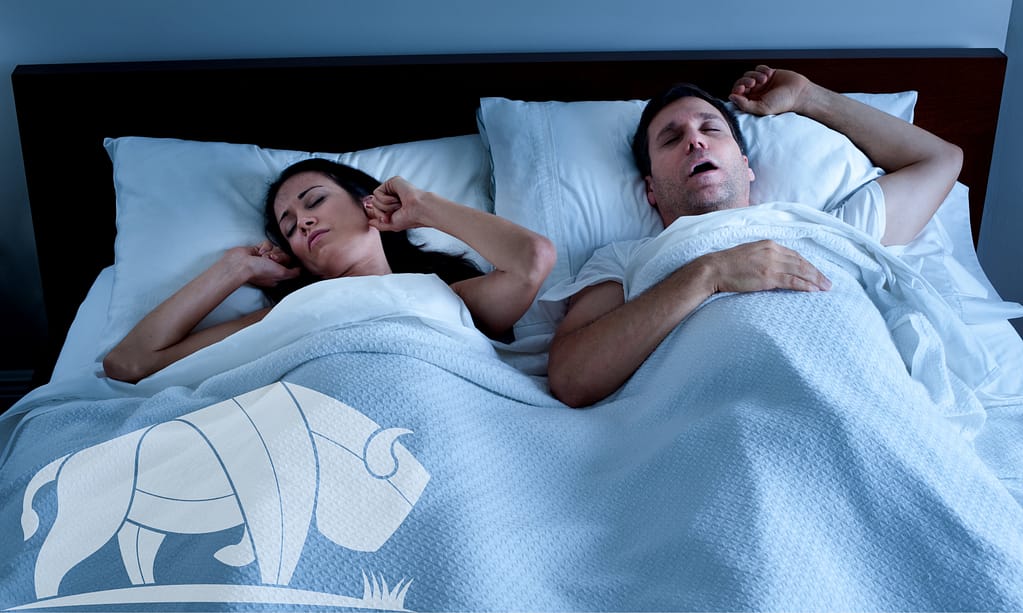6 Things Your Dentist Wants You to Know About Obstructive Sleep Apnea

Here are some facts about sleep apnea.
What is sleep apnea? You might have heard of it before, but despite being a fairly common condition, you may not know much about it.
Many misconceptions are floating around about obstructive sleep apnea and what it means for those dealing with it, so here are the real facts you should know regarding obstructive sleep apnea symptoms and treatment:
1. Obstructive sleep apnea really does stop your breathing as you sleep.
Sleep apnea is far more serious than just being an answer to “Why do people snore?” It actually causes individuals to stop breathing briefly during sleep, which is as serious as it sounds. The sudden lack of air causes those with the condition to jolt awake, at least briefly, potentially multiple times throughout the night.
There are several types of sleep apnea as well. Central sleep apnea, for instance, is a condition related to brain signals responsible for breathing. Obstructive sleep apnea is the more common form, caused by the relaxation of the throat muscles, leading to the closure of the airway.
Airway restriction has two main effects. First, it causes you to suddenly wake up, impacting your sleep quality. Secondly, it also reduces your oxygen levels, which brings about a variety of negative health effects all its own.
2. Anyone can be affected by this condition.
Sleep apnea is associated with various risk factors that make certain groups more likely to experience the condition. It is much more common in men than in women, and it is also closely linked to obesity, as fat around the neck makes blocking the airway easier.
Regardless, sleep apnea is widespread and can affect anyone, even if they don’t fit the typical mold. You could simply have a small airway or other features, such as a high, narrow palate, that can also increase your risk.
3. You might not realize you have sleep apnea.
One of the biggest challenges related to sleep apnea treatment is realizing you suffer from the condition. It’s common to fall asleep immediately after waking from a bout of snoring and then have no memory of waking later on. However, those episodes still impact the quality of your sleep, leaving you exhausted throughout the day.
Many people only find out about sleep apnea when trying to find a solution for how to stop snoring, as it is among the most common sleep apnea symptoms. Still, there are various other symptoms to watch for as well. Waking up with a dry mouth is another potential sign. You may gasp or shake during sleep, as well, which others might notice.
4. Sleep apnea has serious health impacts if left untreated.
Sleep apnea isn’t just about snoring. It has serious potential health risks related to low-quality sleep and reduced oxygen. The fatigue and tiredness you experience can also be dangerous: You’re more likely to get into an accident while driving or to experience injury in other types of accidents.
As your blood oxygen levels lower, your body compensates by increasing blood pressure, a symptom related to many other conditions that can lead to premature death—heart attacks, stroke, coronary artery disease, and more, all closely correlate with high blood pressure.
5. Most Patients Quit CPAP Therapy
There are effective treatments for sleep apnea, but snoring remedies, such as nasal strips, don’t address the core of the problem. You may be prescribed a continuous positive airway pressure (CPAP) machine for moderate-to-severe conditions like obstructive sleep apnea.
The machine is attached to a mask worn over your nose during sleep, supplying air pressure to prevent the airway from closing. However, adjusting to using the machine is difficult and often uncomfortable, causing most patients to quit treatment far too early. As such, more comfortable alternatives may be a better choice.
6. Nightguards are just as effective as CPAP therapy in many cases.
Another potential solution for sleep apnea treatment is a nightguard, an oral appliance similar in size and shape to a sports mouth guard. You wear it during sleep, and it holds your jaw in such a position that prevents the throat muscles from relaxing and closing the airway. Your nightguard will be custom-made to provide the most comfortable fit.
However, while it is a less-intrusive option for patients and can help in many cases, a nightguard isn’t always the right treatment for severe sleep apnea. The best way to learn more about your options is to contact your dentist about your specific conditions.
Is sleep apnea affecting your life?
If you’re always snoring, feeling tired throughout the day, or waking up with a dry mouth or headaches, you could be dealing with sleep apnea, which comes with various health risks. However, you can count on your trusted source for Buffalo family dentistry to find a solution that works for you. Dr. Lisa Spier is a diplomate of the American Board of Dental Sleep Medicine, offering a range of snoring and sleep apnea treatments at Dental Care Associates of Buffalo. An oral appliance could help you achieve relief without requiring intensive CPAP therapy, so schedule your free consultation to talk about your sleep apnea today.
